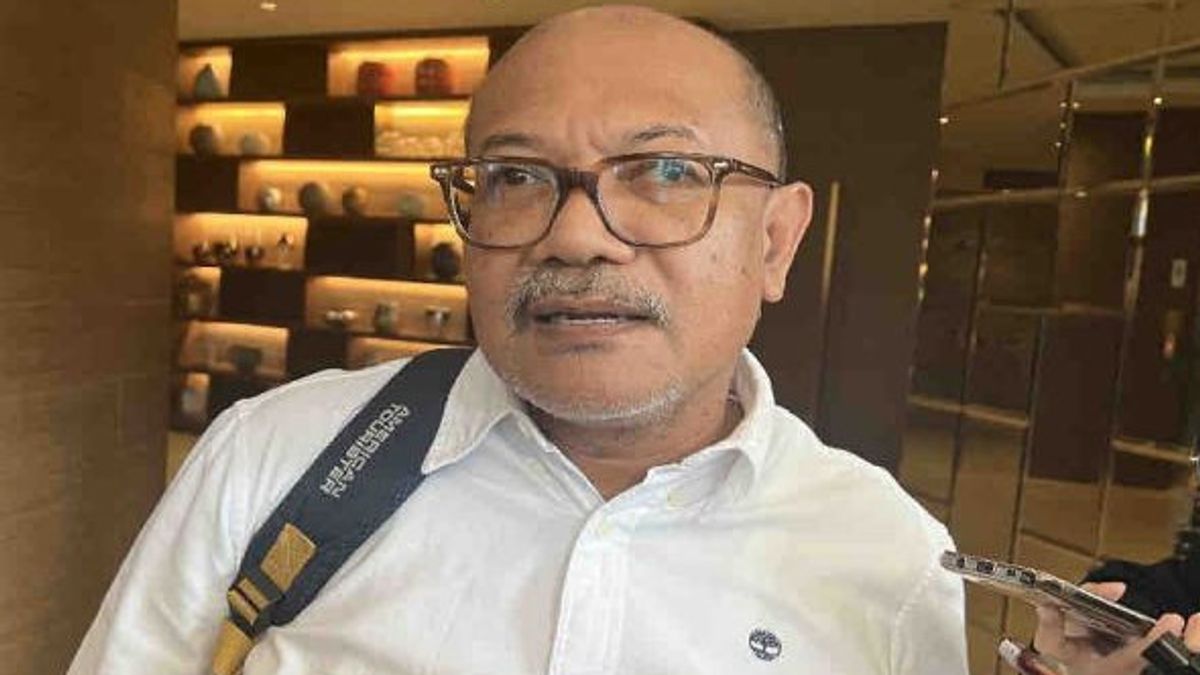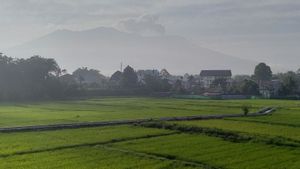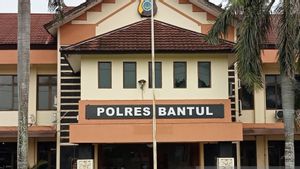JAKARTA - The Ministry of Energy and Mineral Resources (ESDM) stated that the Draft Law on New Energy Renewable Energy (RUU EBET) continues to be encouraged so that it can be completed.
"This (RUU EBET) is being crossed again and there are still things that need to be cleared to reach a common ground, things that mean it still needs to be cleared again," said Director of Energy Conservation of the Ministry of Energy and Mineral Resources (ESDM) Hendra Iswahyudi after a joint discussion of the media entitled "Update Issue and Energy Transition Policy in Indonesia" organized by IESR in Jakarta, quoted from Antara, Thursday, July 4.
He said that the most promising thing is related to the use of networks to optimize the utility of renewable electricity networks.
"The most promising thing is the use of network together, because it is to optimize network utilities so that they can be used to deliver renewable electricity," he said.
The Ministry of Energy and Mineral Resources and Commission VII of the DPR RI are still discussing the EBET Bill to date. Of the three issues that have been delayed, only two issues have been agreed upon, namely the use of the Domestic Component Level (TKDN) and the fulfillment of the need for electrical energy from EBET.
Regarding the target of the new and renewable energy policy mix, it will still be maintained at 23 percent by 2025.
"We are still committed to this, 23 percent (energy fighting), we are chasing it, only the reviewers, this is a continuous meeting," he said.
He hopes that the EBET Bill will soon be promulgated this year, because it is not only important to achieve the goal of national energy sustainability, but also for inclusive and sustainable economic growth in Indonesia.
"Our wish (the EBET Bill) so that it can be promulgated immediately, later the derivative regulations can also be accelerated. We want it to be fast, it has been discussed for a long time," said Hendra.
The Institute for Essential Services Reform (IESR) has pushed for the updating of industrial energy and decarbonization policies in order to achieve the target of the renewable energy mix.
"IESR views that if Indonesia only relies on current policies without a measurable strategy, the achievement of the target of the renewable energy mix will be slow, even Indonesia will not exceed 30 percent by 2060," said IESR Energy and Electricity Research Group Coordinator His Muhammad Bintang.
SEE ALSO:
IESR considers that Indonesia needs to accelerate the use of renewable energy as a strategy to reduce greenhouse gas emissions to achieve net zero emissions (NZE) by 2060 or sooner, in order to limit the increase in geothermal temperatures that cause the climate crisis.
IESR assesses that to achieve the target of the renewable energy mix and the significant reduction in energy sector emissions, policy updating such as the National Energy Policy (KEN), the National Energy General Plan (RUEN).
Furthermore, the General Plan for National Electricity (RUKN), the Electric Power Supply Business Plan (RUPTL), and the finalization of the New Energy Renewable Bill (EBET) must include an increase in emission reduction targets and schemes that support this achievement in a measured manner.
The English, Chinese, Japanese, Arabic, and French versions are automatically generated by the AI. So there may still be inaccuracies in translating, please always see Indonesian as our main language. (system supported by DigitalSiber.id)
















